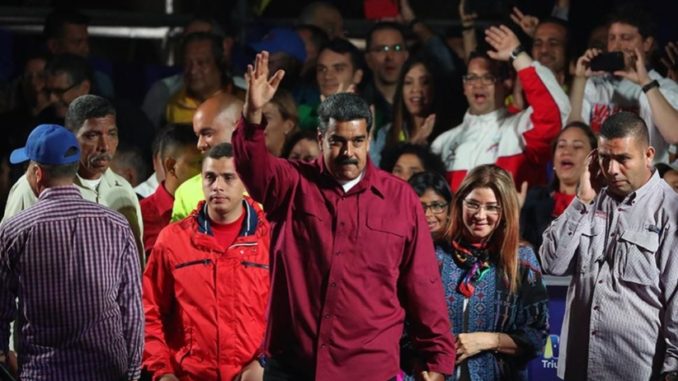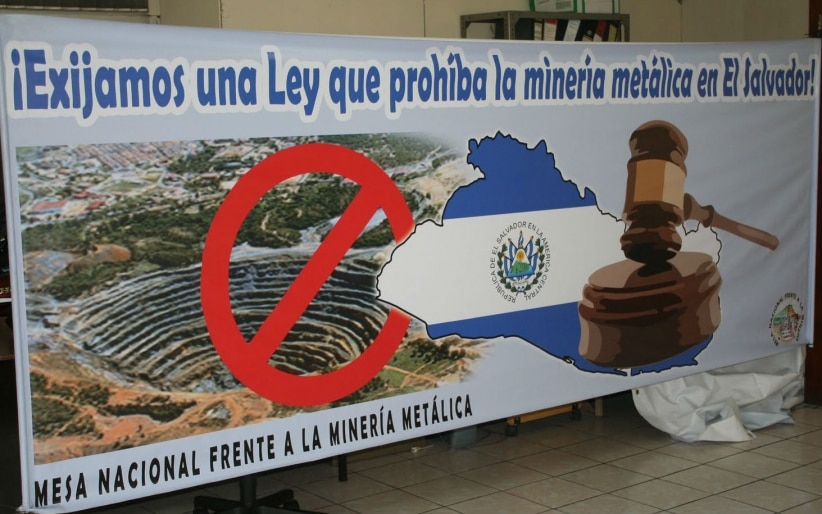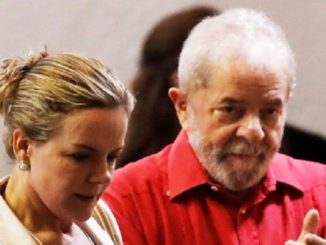
CARACAS – Venezuela’s populist leader Nicolas Maduro won a new six-year term on Sunday, but his main rivals disavowed the election alleging massive irregularities in a process critics decried as a farce propping up a dictatorship.
Addressing crowds of supporters outside the presidential palace in Caracas on Sunday night, Maduro hailed the “impeccable electoral process” that had returned him to power with 67.7% of the vote.
Victory for the 55-year-old former bus driver, who replaced Hugo Chavez after his death from cancer in 2013, may trigger a new round of western sanctions against the populist government as it grapples with a ruinous economic crisis.
U.S. President Donald Trump’s administration is threatening moves against Venezuela’s already reeling oil sector.
Venezuela’s election board, run by Maduro loyalists, said he took 5.8 million votes, versus 1.8 million for his closest challenger Henri Falcon, a former governor who broke with an opposition boycott to stand.

“They underestimated me,” Maduro told cheering supporters on a stage outside his Miraflores presidential palace in downtown Caracas as fireworks sounded and confetti fell on the crowd.
Turnout at the election was just 46.1%, the election board said, way down from the 80% registered at the last presidential vote in 2013. The opposition said that figure was inflated, putting participation at nearer 30%.
“The process undoubtedly lacks legitimacy and as such we do not recognize it,” said Falcon, a 56-year-oldformer state governor, looking downcast.
Maduro had welcomed Falcon’s candidacy, which gave some legitimacy to a process critics at home and around the world had condemned in advance as the “coronation” of a dictator.
Venezuelans in Uruguay denounce ‘fraudulent’ presidential elections
Falcon’s quick rejection of Sunday’s election, and call for a new vote, was therefore a blow to the government’s strategy.
Falcon, a former member of the Socialist Party who went over to the opposition in 2010, said he was outraged at the government’s placing of nearly 13,000 pro-government stands called “red spots” close to polling stations nationwide.
Mainly poor Venezuelans were asked to scan state-issued “fatherland cards” at red tents after voting in hope of receiving a “prize” promised by Maduro, which opponents said was akin to vote-buying.
The “fatherland cards” are required to receive benefits including food boxes and money transfers.
A third presidential candidate, evangelical pastor Javier Bertucci, followed Falcon in slamming irregularities during Sunday’s vote and calling for a new election.
Despite his unpopularity over a national economic meltdown, Maduro benefited on Sunday not just from the opposition boycott but also from a ban on his two most popular rivals and the liberal use of state resources in his campaign.
Venezuelan migrants staged small anti-Maduro protests in cities from Madrid to Miami. In the highland city of San Cristobal near Colombia, three cloth dolls representing widely loathed officials – Electoral Council head Tibisay Lucena, Socialist Party No. 2 Diosdado Cabello and Vice President Tareck El Aissami – were hung from a footbridge.
With the election behind him, Maduro may choose to deepen a purge of critics within the ruling “Chavismo” movement.



